My poet friend Conor sent me this photo of his old lit magazine rejections from around the year 2001, back when we were in college. After I processed the awe of the fact that they are on actual paper, after I noticed one editor had written “sorry” in pen and felt a little pained poetry noise, I realized how prestigious all these magazines are, and how inappropriately we all, while new in our practice, submitted.
“Those are shooting pretty high for such an early stage in your career,” I said.
Many of these publications are in the top 10 in the nation. I wouldn’t have known back then. Unless it’s the New Yorker, it can be hard to tell how fancy a lit mag is.
Psst: This site uses affiliate links.
It reminds me of the day I was in my MFA and a faculty member mentioned submitting to Ploughshares. I had just submitted to Ploughshares. I had no idea how out of my league I was.
New writers suffer this lit mag paradox: The literary magazines you’ve most likely heard of are also probably the hardest ones to get into.
I asked Conor if he remembered how he decided which to send his work to.
“Pretty random,” he said. “They didn’t have updated websites back then, so I think it was a combo of whoever my professors mentioned and then looking in whatever book it was in the library that listed active submission addresses.”
Thank god for Submittable, the interface most lit mags now use to let you submit, sans self-addressed stamped envelope.
And thank god for Poets & Writers listings.
But even then, it can be so confusing. Unless it’s a genre magazine, every publication seems to describe what they’re looking for in the same vague way.
“Give us work that reminds us there’s blood pumping in our chest. Give us work that reminds us of all the voices shouting for a chance to speak their truth. Give us work that makes us pee a little. “
So How Do You to Find the Right Lit Mag for You?
Ok sorry, this is a little bit of a trick question. There is no right lit mag. There is only a forest thick with literally more than 1,000 publications, which, more than a decade into my own career, intimidates me still. There are the huge redwoods of nearly century-old standbys, and there are sapling zines that will be seen by perhaps a few dozen people.
Under the shade of some, you will feel a little more at home. You will like what you find there, which means that they might like what you have to offer, either this year, when submissions open up (usually in fall or spring), or later in your career.
You can only spend so much time on the outside of the forest. In order to know what it’s like, you have to just walk inside. Because this forest is so big, the time to start exploring is now.
So, how to decide which literary magazines to read and which to submit to?
One practice I’ve been doing for the last few years is that I choose one top literary magazine to subscribe to a year, in order to explore and learn from the best. I thought Tin House was the right one for me. Then Tin House closed. (They’re still my dream press though!) Others I’ve tried and loved are McSweeney’s and The Sun.
But how do I pick just one???
Hey here’s an idea, click this wheel of top literary magazines. Subscribe to the first magazine that it chooses. (You can spin it more times though if you need it. It’s fun.)
If, in a year, you decided you like that magazine, renew and maybe add another subscription. If you don’t love it, spin again.
But, because you’ll need places to submit to as you rise up to the level of the top publications later in your career, I don’t think your literary magazine education is complete if you stop there.
Find Your Local Lit Mag
The top literary magazines can be super intimidating. You go in those author bios and start to feel like you’re so behind.
That’s one of many reasons it helps to read a regional literary magazine. As far as I understand it, magazines can be named for their states (and are usually from a university there), but you don’t have to be from the state to get published there.
For example, Big Muddy says, “Although we encourage topics related to the Mississippi River Valley, no direct relationship is required.”
I recently picked up an issue of Moss Lit, “A journal of the Pacific Northwest,” and was delighted to find so many local Seattle authors in there. I also discovered more.
I try to read on the level of dream writers, but also on the level of community-building. Over the years, you’ll get to watch your community rise up to those dream pubs, such as when my writing workshop buddy Gabby Bates got a poem in the New Yorker. I have touched her arm.
I actually just subscribed to Moss. If you want a lit mag from your state, I made you a map below!
I didn’t pick the fanciest ones, for example, Prairie Schooner out of Nebraska, or Gulf Coast out of Texas. I tried for middle-of-the-road, and did my best.
Your second challenge is to buy a back issue of the magazine from your state, which are usually available on their website:
Just Explore
I’m sitting here with a copy of The Iowa Review, thousands of miles from Iowa. I picked it up at AWP, where I purposely let a meandering right turn vs. left decide what I buy.
I disobeyed the order in which the editors so painstakingly, I’m sure, laid out the stories. I read all the non-fiction first, then the poetry, and now the fiction. As with Lucky Charms, we all consume in our own way. As usual, I ate my marshmallows first.
I found an incredible story by Julie Grey that went in my Writer’s Mission Control Center Reading List, in case I ever need to study a master example of sexual tension.
Laura Crossett’s “A Librarian’s Guide to Mourning” showed me the world from a perspective I’d never get otherwise, that of a librarian whose father had killed himself.
I went to the contributor’s notes and read them. Marveled at all the paths meeting here. The first author, Dubai-born, another a mathematician, another a dog walker. I notice how many of the graduates are from the Iowa Writers’ Workshop, naturally. I found Jesse Treece, who makes collages by hand from vintage books and magazines in Seattle. I didn’t know of her. Now I do. My community sprouted a few new leaves.
I grew a soft spot for Derby Maxwell, a writer, comedian, and lawyer. He has a BA in criminal justice, a JD, and an MFA in creative writing. He lives in Los Angeles, where he is currently working on a novel. And just when I’m feeling so inadequate, I read that this is his first publication, and I love him for saying that.
And then I finished this edition, which I might pass off to a friend, and now I know the forest a bit better, feel a little more at home here.
Are you submitting to lit mags (or hoping to one day?)
See the full guide in Welcome to the Writer’s Life.

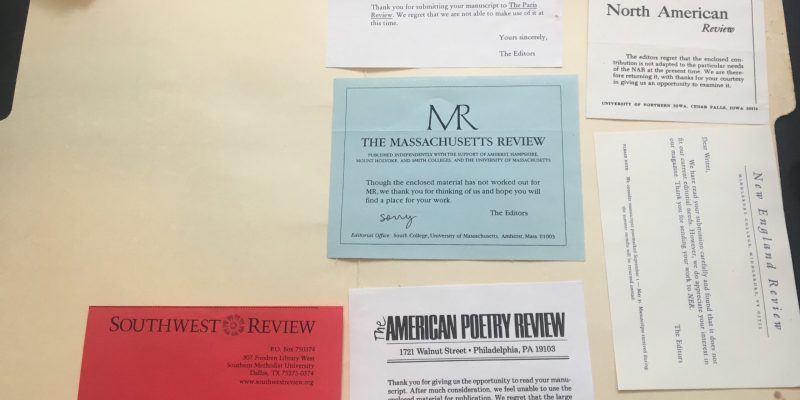
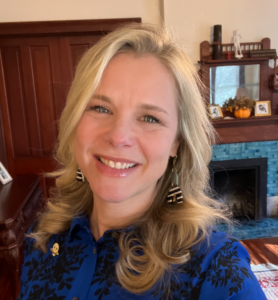
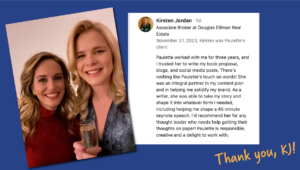
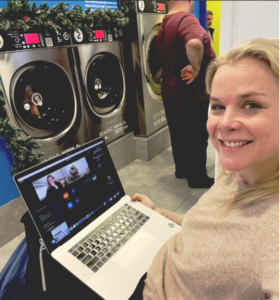
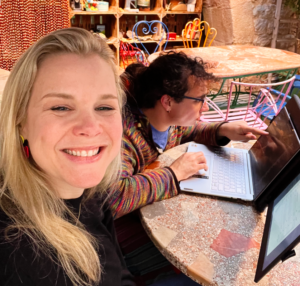

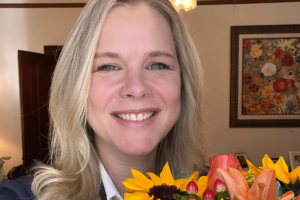
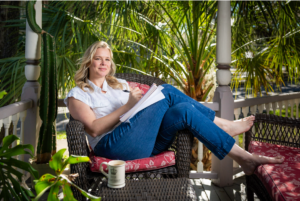
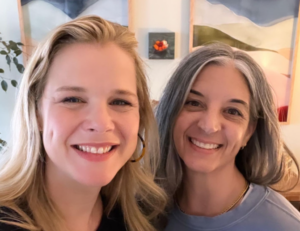
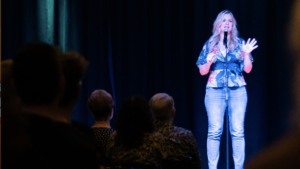

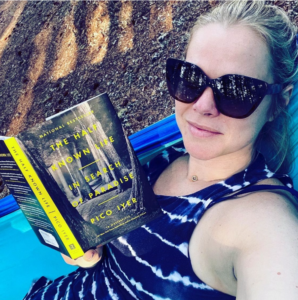
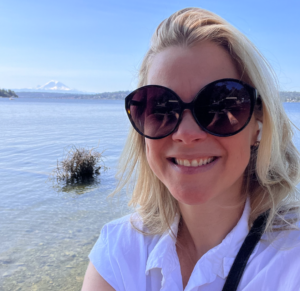
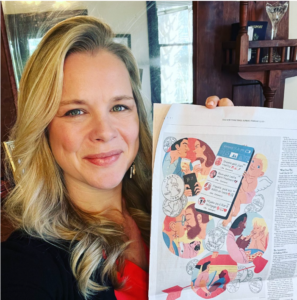
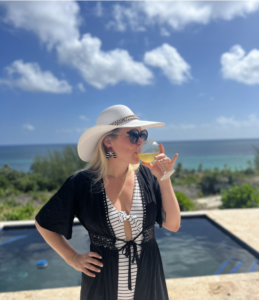


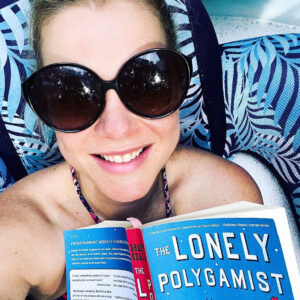
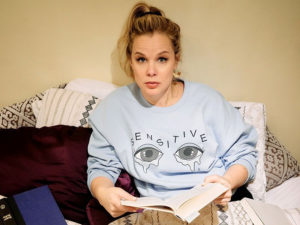
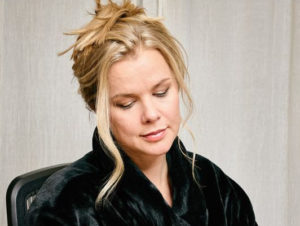
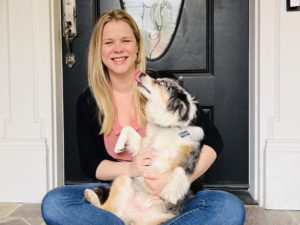
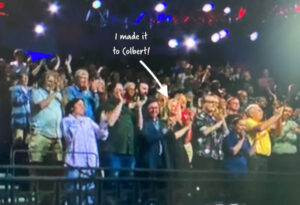


This Post Has One Comment
One strategy that has helped me is to read (recently published) collections of short stories, find some that are similar to mine and then look into where they were first published, see if the publications are still around.
But I did spin the wheel and got Granta.
Comments are closed.